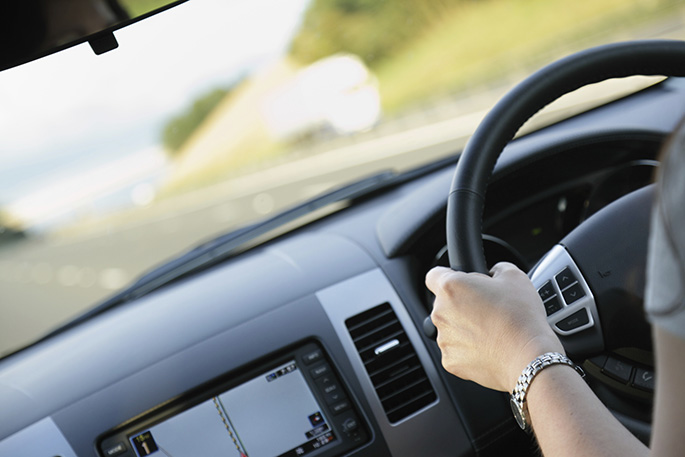Following the Government's pre-Budget announcement to commit $86.5 million to fund driving lessons and tests for 64,000 New Zealanders, a Bay of Plenty programme is already able to show it will be money well spent.
The Blue Light Youth Driver Navigator Programme teaches secondary-school-age Kiwis in Bay of Plenty and rural Waikato to drive, as well as offers practical support to remove barriers to obtaining their licence – whether that's getting them a pair of glasses, applying for identification like birth certificates, or negotiating in-school time for lessons.
The programme was launched in February 2020, following a successful three-year-pilot run in Bay of Plenty. The programme aims to have 2000 young people gain their full licence within the next three years.
There are 1900 young people currently actively involved in the programme, which has recruited a total of 2277 participants to date.
2119 driver's licences have been obtained through the programme to date, with 164 being full licences.
Participants are aged 16-24, must have limited/no access to a suitable vehicle, as well as limited/no access to a supervising adult, and limited financial means to meet the cost obligations of attaining a licence.
Referrals come from decile 1-5 schools, NEETs students, and the NZ Police's AWHI programme for roadside offenders.
Māori comprise the majority of participants (66 per cent), NZ Pākehā comprise 22 per cent, Pasifika comprise 8 per cent; 4 per cent is ‘Other' ethnicity. Many participants come from decile 1-5 schools, experience poverty, and are from rural/less connected areas of NZ.
The programme's driving instructors and community volunteers travel alongside rangatahi through every stage of the driver's licence journey.
And the results speak for themselves, say the programme's coordinators.
The programme recently commissioned ImpactLab to calculate its social value; in other words, how much in dollar terms communities benefit from young people driving safely and legally on their roads.
Founded by Sir Bill and Maria English, ImpactLab calculates social value - social impact in dollar terms - by measuring a programme's impact in terms of benefits and avoided costs to government, combined with evidence from global literature about how effective a programme can be.
ImpactLab's report analysed a snapshot of the three-year pilot programme – an 18-month period between May 2020-October 2021, which encompassed various lockdowns. The calculated social value is therefore likely an underestimate
And the figure? Every year, Blue Light's Youth Driver Navigator Programme delivers $10,019,972 of measurable good to society. The social value generated for each participant is $14,549 – that's a return on investment of $7.20 for every dollar spent on them.
There are a number of factors that contributed to that conclusion:
Driving legally helps keep young people out of court. Over 30 per cent of under 25s who end up in prison, entered the justice system via driving offences, says a programme coordinator.
"Driving safely limits road deaths. A defensive driving course is a key part of Blue Light's programme, giving young people the skills to negotiate our roads safely and avoid becoming a grim statistic.
"Being able to drive allows young people to get educated. It's easier for participants to attend
school and tertiary institutes because they have the means to travel there resulting in qualifications that lead to better-paying jobs. Many participants don't live somewhere with a public transport system."
Being able to drive can also expand employment opportunities and earning potential.
"Similarly, participants can apply for and take up jobs that require a driver's licence, and/or are located further from their homes."
But the value of a driver's licence goes beyond the quantifiable.
"It's common for participants to be the first in their whānau to obtain one, acting as role models for parents and siblings."
The programme's volunteer instructors also offer priceless mentoring to participants; sometimes, the volunteer is the only reliable adult in the young person's life, say the coordinators.
Blue Light's Youth Driver Navigator Programme is the largest of its kind that targets secondary-school-age Kiwis.
Its wraparound support is another point of difference. Blue Light works in partnership with the police to deliver a range of youth-focused programmes, such as the Youth Driver Navigator Programme, which helps young people gain driver's licences.
The organisation exists to reduce the incidence of young people becoming offenders or victims of crime, and encourage better relations between the Police, young people, their parents, and the community.
Budget 2022 will be delivered in full later this afternoon.



2 comments
Licences
Posted on 19-05-2022 14:03 | By peanuts9
What difference does a license make? Approx 27% are driving without licenses. That ibcludes those who have never held one, and those who have lost them for one reason or another. There is also a group who for health reasons, should not be driving but do. Holding a license does not make a good driver as seen every day in Tauranga The numbers in the last group is
Been saying this for years...
Posted on 19-05-2022 17:38 | By morepork
Advanced and Defensive driving courses should be easily available and affordable for everyone. Standard coaching for new drivers is also desirable. Any money spent on improving the general standard of driving on our roads cannot be considered "wasted" BUT it should be prioritized, just like ALL major spending, and I'd like to see the Community involved in that prioitization.
Leave a Comment
You must be logged in to make a comment.